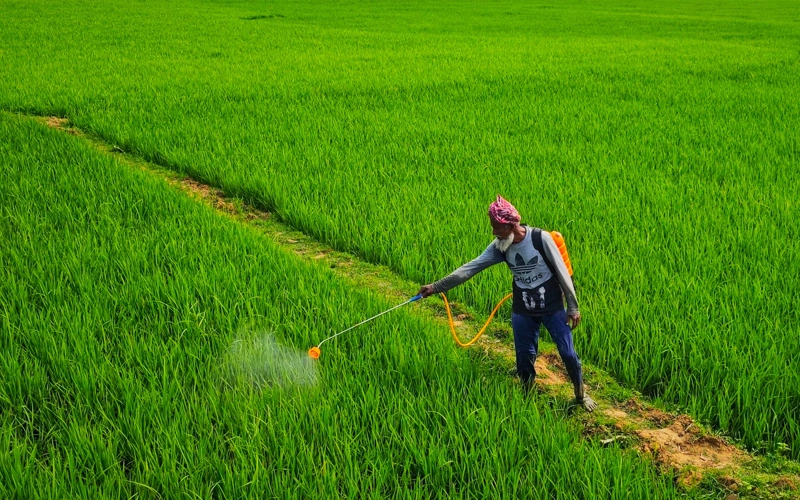Indian scientists unveil portable ultra-sensitive device to detect toxic pesticides
Researchers in India have developed a compact automated device capable of detecting trace levels of harmful pesticides in water, food and soil, TV BRICS reports.

According to IANS, the technology is designed to offer real-time analysis outside traditional laboratories. Existing detection methods for residues such as the commonly used organophosphate malathion often require costly equipment, lengthy procedures and specialised staff.
The newly developed device uses a colour-based chemical process built around gold nanoparticles and a customised molecule that binds specifically to malathion. When the pesticide is present, the reaction triggers a shift in colour from red to blue. The device’s integrated optical sensor reads this change automatically, removing the need for manual interpretation and enabling rapid, high-precision results.
Researchers reported a detection limit of around 250 picomolar – a sensitivity level seldom found in portable systems – and confirmed strong alignment with standard laboratory spectroscopy measurements.
According to the team, the device could support farmers, food-safety inspectors and environmental monitoring agencies by enabling quick on-site assessments of irrigation water, agricultural produce and soil quality. It may also help track pesticide runoff, which remains a major threat to rivers, wetlands and local ecosystems.
The prototype has so far been tested under controlled laboratory conditions, with trials on real-world samples – including fresh produce and field water – planned next. Researchers intend to expand the platform’s capabilities to identify additional pesticides, reinforcing its relevance to sustainable agriculture and environmental management.
Earlier, Qazinform News Agency reported that the FAO was concerned about increasing use of pesticides.
